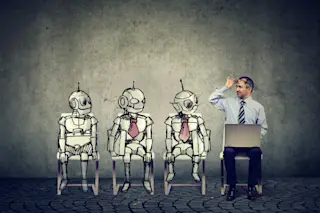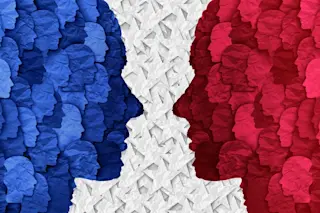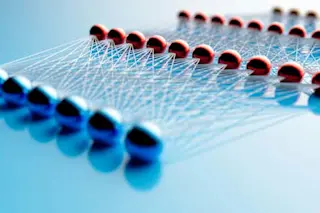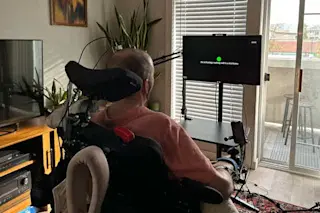(Inside Science) — Artificial brains may need deep sleep in order to keep stable, a new study finds, much as real brains do.
In the artificial neural networks now used for everything from identifying pedestrians crossing streets to diagnosing cancers, components dubbed neurons are supplied data and cooperate to solve a problem, such as recognizing images. The neural network repeatedly adjusts the interactions between its neurons and sees if these new patterns of behavior are better at solving the problem. Over time, the network discovers which patterns seem best at computing solutions. It then adopts these as defaults, mimicking the process of learning in the human brain.
In most artificial neural networks, a neuron's output is a number that alters continuously as the input it is fed changes. This is roughly analogous to the number of signals a biological neuron might fire over a span of time.
In contrast, in ...














